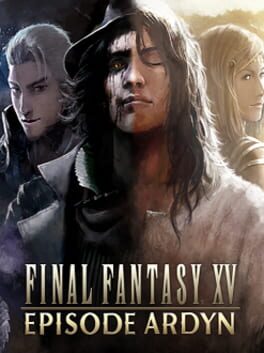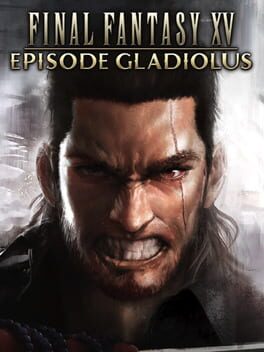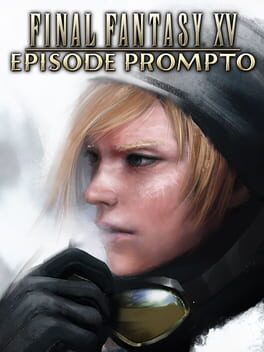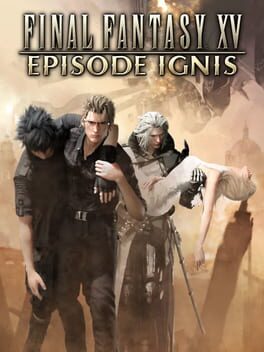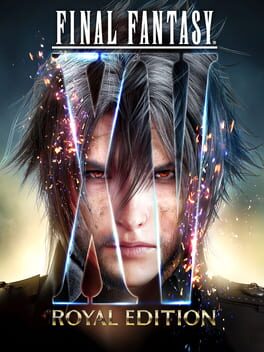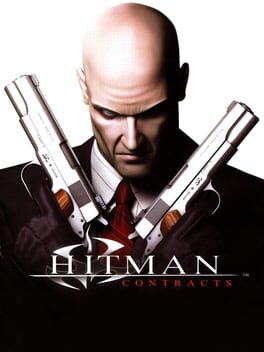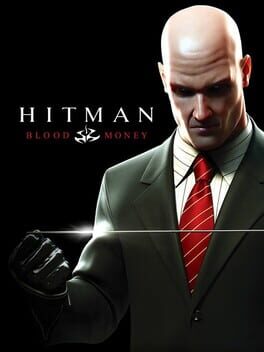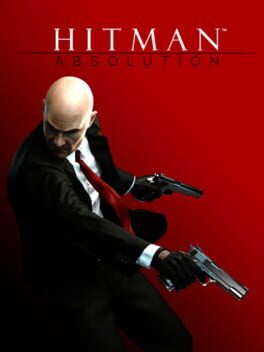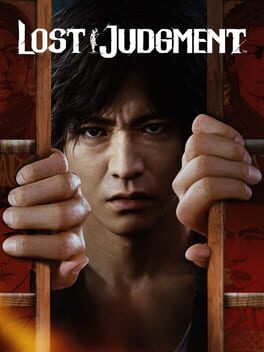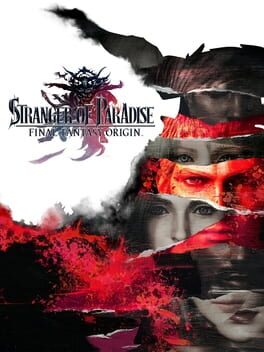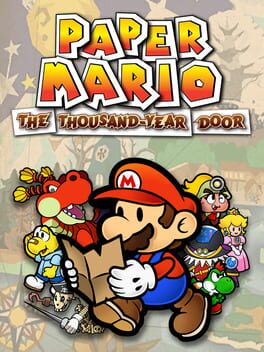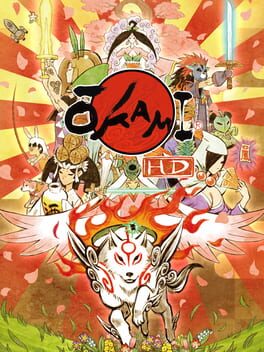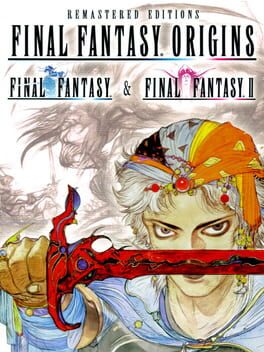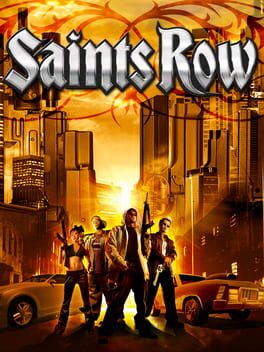Nyth_Grandbeard
Episode Ardyn is the final piece of DLC for the post launch line up of content for the Final Fantasy XV media amalgamation. What was originally supposed to be the start of a new story line that would've seen our cast of characters get a happy ending instead was transformed into a more straightforward prequel to the main game. In this DLC we learn more about Ardyn's backstory, but before you play this game it is highly recommended you watch the Episode Ardyn Prologue animation on youtube on the official FFXV youtube page, which is done by the same team who did the FFXV Brotherhood animation. It provides more context for the story by showing things that are only vaguely hinted at in the actual DLC content itself. Combined it presents a really compelling backstory for XV's main antagonist that leaves you really questioning who is the bad guy by the end. The gameplay is rather straight forward as Ardyn has similar abilities to Noctis, and then some such as demonification of your enemies and teleporting. The bulk of the DLC takes place in what amounts to 4 blocks of Insomnia, where you can wreak havoc to the citizens of the city and rack up points. In battle we are also greeted to a catchy song sung by Lotus Juice of Persona series fame, and it really puts the whole experience together in an awesome, yet sorrowful package. I highly recommend Episode Ardyn to anyone who plans to revisit XV, or as a first timer. If you have already beaten the game before I recommend starting with the DLC first as it sets an entirely different tone to the rest of the game's events but if you are a first timer I recommend saving it for the end as it does spoil some late game story points. I think as it stands Episode Ardyn is the perfect end cap to the many ups and downs of the existence of the expansive FFXV universe.
Episode Gladiolus is the first piece of DLC content for FFXV, and it really shows. It is a DLC that has big ambitions, but is just too short to really see those ideas shine. The DLC follows Gladio as he briefly leaves the main part in the middle of XV's story. He leaves with an older royal guard named Cor, and together they go into the lair of the ancient Royal Guard of the first king of Lucis, Gilgamesh. The main content of the game is just a couple of action set pieces where you fight a couple waves of enemies and descend further into the cave to challenge Gilgamesh and prove yourself as a worthy shield to King Noctis. Gladio himself plays really well all things considered as he is slower than Noctis, so his combat focuses on pacing yourself and parrying at the right time. When you master Gladio's play style the DLC really shines, and it's put on full display during the battle against Gilgamesh himself and the bonus fight with Cor. Sadly like I mentioned outside of those two instances the DLC doesn't really take the time to challenge the player in any meaningful way which is truly a shame. Luckily as the DLC kept coming out the content got better as the development team were willing to experiment... for the most part.
Episode Prompto is the second piece of DLC for FFXV and takes place towards the end of the story when Prompto is briefly ejected from the party. The story follows Prompto as he comes to terms with his true identity and origins as he fears it may cause a rift between him and his best friends. Prompto traverses through the Nifilheim base, and a frozen tundra with the help of Aranea Highwind, using his various gun techniques which work surprisingly well for an engine which wasn't built for third person shooting gameplay. Unfortunately this DLC starts to overstay it's welcome towards the end and I was just itching to get it over with. The main thrust of Prompto's side story is mostly explored early on in the DLC and instead of approaching his inner turmoil in an interesting way I feel like Prompto is left pouting a little too much which I felt was a little out of character for him. I understand what he was going through was extremely difficult, but how the writers approached his response to this information felt a little weird to me which really killed the main vibe. Despite this I think the expansion is a must play if you are going for the complete FFXV story.
Episode Ignis is the fourth piece of DLC for FFXV if you include Comrades, and follows Ignis during Noctis' attempt to complete the rites with Leviathan during the 3/4 part of the main story. There isn't a lot to say about the story as it would spoil a ton of interesting things that I think are very cool to experience on your own. All I will say is that this DLC adds an alternate ending which attempts to set up a new story line that would've continued in Episode Ardyn if it wasn't scrapped, and while I heard a ton of people saying it was a really good alternate ending, I feel like I have to respectfully disagree as it kind of contradicts the entire theming and messaging of the original base game as a cheap attempt to give fans what they think they want. Thankfully there is a true main ending which in my opinion is just as if not more epic than the alternate ending which gives you more appreciation for Ignis as a character than any other part of the story. The combat sees you use Ignis' daggers as they are imbued with elemental magic, each one allowing for different play styles such as speed, strength and balance. You are able to pull of some crazy combos if you switch between styles during the middle of battle which felt insanely satisfying. And for a considerable portion of the DLC you are able to zip around the city of Altissia with a grapple hook. It almost feels like Spider-Man which I really enjoyed. Overall Episode Ignis is the best DLC of the original line up and is an absolute must play if you revisit FFXV, or are playing for the first time.
FFXV Royal Edition lives up to is subtitle as it is the definitive way to experience the story of FFXV. I originally fell in love with the game back on release but with this re-release I only love the game more, but this most recent playthrough has definitely showed some issues I have with this title. The story follows Noctis, a young prince of a kingdom called Insomnia who begrudgingly accepts his duty to one day be king. The narrative starts with Noctis and his best friends Gladio, Prompto, and Ignis going on a road trip to meet Noctis' fiance Lady Lunafreya. Things are quickly derailed however as back home Noctis' dad is murdered during a peace treaty signing with the kingdom of Nifilheim. Now Noctis is thrust into the shoes of Kinghood as he must fight an enemy nation, and an ancient advisory to emancipate his people and his nation. Most of your playtime will be dedicated to driving around the open world with your buddies as you forge memories, and fight various monsters, and daemons. Open world is something I would use loosely however because if you spend more than a couple minutes exploring the areas off the beaten path you'll be greeted with countless fences and impassible mountains, and what little area you are able to explore off the road rarely has any content worth exploring outside of the occasional dungeon or hunt, and herein lies my main issue with XV and that is that the game came out in a time where every game had to be an open world adventure, and this game tried to do that. The world is very pretty to look at from the road but venture off the beaten path and you will notice things fall apart rather quickly. Despite this the content that is present is really good and engaging and should keep you entertained for hours on end. The combat sees Noctis use his various weapons to deliver devastating damage to his foes in a character action style which is a first for the Final Fantasy mainline series. While many fans bemoan the change in gameplay style I think it is a vast improvement over the nauseatingly mid tier combat styles Square had come up with in the last couple installments as they attempted to reinvent the wheel. As an action game XV isn't the most in depth but it delivers enough variety to take you over the finish line without it all feeling too repetitive which is more than what I can ask for. Royal Edition also adds many new cutscenes not present in the original release to further flesh out the story, and think they are all welcome additions as it helps flesh out certain characters who didn't get much screen time before. Also included with the Royal Edition are all the original DLC for the game excluding Episode Ardyn, and all the DLC help expand the world and story of XV in great ways. I have reviewed the DLC separately so I won't go over them here but they are all worth your time to get the most out of this game's story. Also included is a completely reworked final dungeon, which previously was just 2 hallways. Now the final dungeon is it's own open world area that has it's own side objectives and really helps drive home the devastation that the Nifilheim have caused. Overall while many people deemed XV as the downfall of the main series due to it's combat change, and its tumultuous development history, I think it is a step in the right direction and is a great new beginning for the series, as it seems at the time of writing this review that XVI will take many concepts and ideas explored in this game and expand upon them for the better with the awesome development team behind FFXIV working on it. FFXV is a game that has greatly impacted me on release, and I am glad to say that it still hits as hard if not harder with the new content that has come out since it's initial release and is a must play for any JRPG or gaming fans in general.
2013
Hitman Contracts is the 3rd installment in IO Interactive's Hitman Franchise, and what it doesn't do in original content makes up for in vastly superior mechanics and AI programming to it's predecessor Hitman 2: Silent Assassin. The game follows Agent 47 as he has been severely injured while on a mission and he is left to recover in his hotel room as he recollects various missions he went on, 6 of which are original scenarios for this game while the rest are remakes of levels from the original game, Hitman: Codename 47. The original levels are full of atmosphere, and condensed enough that the levels don't feel empty and lifeless like in Silent Assassin. Some stand outs include The Meat King's Party which is an orgy of blood, and ecstasy as 47 must take out truly despicable enemies. There's also Beldingford Manor which is dripping with atmosphere, and feels fully realized with so many secrets and environmental story telling that you could get lost in the level. Now with that said the levels remade from Codename 47 aren't bad in fact I feel like quite a few of them make the transition quite well such as Traditions of Trade, or The Lee Hong Assassination. The gameplay is your usual Hitman affair where you are left in a sandbox world to take out your target anyway you desire, but for the first time in series history (at the time of it's release) it feels like all the mechanics work as they should like using disguises, and being able to navigate the world with ease. I'm comfortable with saying that Hitman Contracts is the entry in which the series starts to actually be good. It is certainly far from perfect, but it is a step in the right direction from Silent Assassin, and I can't wait to see what Blood Money has in store next.
Hitman Blood Money is the fourth installment in IO Interactive's long running sandbox murder simulator that marks the end of the "classic" era of games while simultaniously starting the "modern" era. What I mean by this is the game feels very similar to Silent Assassin, and Contracts while playing but adds so many more mechanics, improved (exploitable) AI, and minor conveniences that make the experience much more friendly to fans of the modern trilogy. The game sees you refill the shoes of Agent 47 as he goes around the United States killing various targets who all have some ties or connections to candidates to an upcoming presidential election. Due to taking out targets around such a high profile event government agents are hot on the heels of your actions, and whether or not they catch you is for you to find out, but this game does culminate in an explosive ending that does not disappoint. The gameplay is your typical Hitman fare where you are dropped into sandbox environments where the world is your plaything. There are so many different ways to take out a target in each mission that each playthrough can feel different. Using various tools at your disposal like coins to distract NPCs, lock picks to open doors, and various different poisons to either lethally or non lethally take out enemies you may encounter. That's not to mention the various guns you have at your disposal to play with the sniper rifle, silenced pistols, and even automatic weapons. There are also plenty of disguises to be found in this game, and disguises work better than they ever have at the point of this game's release. It doesn't feel like NPCs can smell the murderous intent coming off of you from a mile away, and instead they won't notice you unless you do suspicious behavior or be in places you shouldn't be and it feels way more fair than how it worked in Silent Assassin and even in Contracts. The maps are also nice and compact in a way that they don't feel huge and open, and at the same time don't feel tiny and too short. They hit the perfect balance of depth where you are left with plenty of room to experiment, while not leaving you overwhelmed. Other than the tutorial mission in this game, which is one of the biggest red herring in gaming as it feels like an entirely separate game from the rest of the experience. But if you can look past that you will be left with an awesome experience with tons of replay value, and a fun time you won't soon forget.
2012
Hitman Absolution is the 5th Entry in Io-Interactive's series, and this game is sure a doozy. Following the release of the stellar entry, Hitman Blood Money, it almost felt like IO wanted to branch out and try new games which resulted in stuff like Kane and Lynch, and Mini Ninjas neither of which seemed to stick in the popular conciousness. and around the release of Kane and Lynch 2, Eidos, Former publisher for the Hitman Franchise was gobbled up by the japanese gaming conglomerate, Square Enix. These factors could have brought some stress upon the team around Absolution's development to result in such a tonally inconsistent, jumbled amalgamation of random ideas and concepts that is this game. Whatever the reason was Hitman Absolution really dropped the ball in terms of series momentum. The story follows Agent 47 as he is tasked to eliminate his former retainer, and only real friend, Diana. He soon comes to find out that the reason he was sent to eliminate her was so the Agency could get their hands on an experimental super soldier child that they had been developing who was stolen by Diana. He is left to care for the child but quickly gets out smarted by the main antagonist of this game who is just Jack Nicholson from the shining but slightly more nutty. The story tries to take it's self so seriously that it comes off incredibly edgy, and to top it all off it throws in all sorts of nonsense jokes and line delivery that throws the whole tone out the window. But most people don't play Hitman for the story, they mostly play it for the fun sand box levels and mechanics that they can play around with, so does this game deliver on that front? No. This game instead opts for an extremely linear level design philosophy which is so counter intuitive to the mechanics of the Hitman series, and this game in general. All the staple mechanics from Hitman return here such as sneaking, wearing disguises, and dragging bodies, but the way these levels are structured makes it so that all these core mechanics are pretty useless and instead the most optimal route to completion most of the time is to just instead go in guns blazing. It certainly doesn't help that this game also has really cheap enemy placement which makes it hard to not get spotted when joined together with the terrible instinct system. The basic premise of the instinct system isn't terrible, it essentially allows you to see enemies through walls and pin point targets which could be helpful for strategizing if it weren't for the fact that there is no map to reference along to like previous games. There is also the problem with disguises basically being more useless than they were in Hitman 2 Silent Assassin which says a lot. Basically any guard can see through any disguise unless you use your instinct ability to hide your features from oncoming guards. The big problem with this is that the instinct ability is based off a meter which lasts too little to really have an impact on sneaking past guards. Overall Hitman Absolution is an over bloated, mess of a game that if I had played on launch I would have assumed that this game would mark the end of the Hitman franchise as we know it. But at the time of writing this review there has been 3 additional Hitman games to have come out who bring the series back to it's roots and then some in some very impressive ways. There is only really one positive thing I can say about the game and that is that it runs as it should and isn't very buggy which nowadays is something that is far too rare. I wouldn't really recommend this entry to anyone, not even fans of the series, but if you are a completionist who has to play all the entries in the series, I just recommend playing this game more like a cover shooter, and less like a stealth game and you will have a much better time.
2021
Lost Judgement is the second installment in the Ryu Ga Gotoku Studios' Judgement series, and it follows the adventures of the Yagami Detective Agency as they try to get to the bottom of a suspicious murder that is way more complex than meets the eye. This game takes place two years after the events of the first, and a couple months after the events of Yakuza 7 (Like a Dragon) where Yagami and Kaito are left solving small mysteries and crimes within their town of Kamurocho when they get a mysterious call from Sugiura, an ally from the previous game who has now set up his own detective agency in Yokohama. Sugiura asks for Yagami's help as a mysterious string of bullying cases have been plaguing the locals, quickly the bullying case unravels into something bigger as a dead body has turned up of a former student teacher of the local high school. The identity of the corpse is revealed in a seemingly unrelated battery case via a court room hearing. It is up to Yagami and his friends to solve the mystery of the dead body and how the plot goes way deeper than he initially imagined. This game's story has plenty of twists and turns as fans of the first Judgement game and greater Yakuza series as a whole have come to expect. The game will seemingly have you on the edge of your seat all the way to it's conclusion having you wonder where it will go. That is when you hit about Chapter 4-5 as the beginning of this game felt oddly slow to me especially compared to it's predecessor. It's not due to bad writing or anything, as the beginning of this game is to set up most of the key players and the greater mystery but it takes it's time a little too long which had me wondering when things were going to pick up, but rest assured when things do pick up, they pick up hard. The story over all is very satisfying as every primary character goes through their own arcs and experience growth in ways that I didn't see coming. One worry I had while playing the game is that Yagami seemingly uncovers most of the secrets of the enemies at almost a little past the halfway point which left me thinking that there would be no revelations or plot twists to keep me engaged until the end. But this game takes advantage of revealing most of it's secrets early to allow the antagonists to be involved in the plot in very interesting ways I didn't see coming. That said while the story was good it didn't leave me with that strong impact feeling I had completing the first one. The gameplay on the other hand feels super smooth and easy to control, and allowed for tons of fun as is usual for Ryu Ga Gotoku Studios. The developers really have learned the ins and outs of their proprietary dragon engine by this point so any hiccups or growing pains they experienced when making games like Yakuza 6 or Yakuza Kiwami 2 have been mostly ironed out. The open world of Kamurocho and Yokohama both are still fun to explore, and traverse through as you are now able to skateboard and have some limited parkour in certain segments to help you get around. There is also a ton of engaging side content to keep you occupied for hours on end. Overall Lost Judgement is a worthy successor to the first game, and hopefully there will be a third game to continue to the momentum, even though it maybe unlikely at the time of this review due to some internal politics involving Yagami's actor's management team. Regardless this game is satisfying from beginning to end, and if you love any of RGG Studio's offerings you'll certainly love this one.
2022
Elden Ring is the newest game from prolific developer From Software, and is the next step in evolution for the Souls series. The game is set in the world of the Lands Between where a legendary artifact called the Elden Ring is shattered and split amongst several Gods and Demi-Gods. You play a nameless Tarnished, a person who has been exiled from the Lands Between, who goes on a journey to collect all the shards of the Elden Ring and assume the Throne of Elden Lord. Along the way you will encounter various NPCs and locations that will help shape and weave your journey to one of many different endings. The gameplay is fundamentally the same as standard Souls-Like fair with parries, blocking, backstabbing, and stamina management but with added elements such as jumping, and horseback riding/combat. These two minor adjustments add a lot more depth to the Souls formula than what you may initially anticipate as jumping allows for a new style of dodging and platforming, and the horse allows for quick traversal and quicker combat. The platforming and quick traversal go hand in hand with this game's approach to the world you explore. Unlike Souls games prior which were either linear worlds, or interconnected levels, this game takes on the challenge of tackling a large open world, and is mostly successful with it. Unlike other open world games like Breath of the Wild or any of Ubisoft's recent offerings, the open world is densely packed, and if you're never more than a stone toss away from a point of interest or item; that is at least for the first region and all of it's encompassing areas. As you get further and further into Elden Ring, the less open it really gets, and by the end of it, you just end up playing a regular souls game with little interconnected areas, and very little wilderness to explore. Perhaps this is due to From Software's tried and true excuse since day one, "Time Constraints", but i'm not sure I buy into that anymore as From Software are big enough to be their own bosses, and could take as long as they needed to complete their vision. If the second half of the game was as solid as the first, i'd say this game is damn near flawless. But unfortunately it couldn't keep the momentum up. Now that is not to say the second half is bad, in fact it is way far from it. As a more standard Souls Experience the second half of the game provides, i'd say it's better than some of the worst areas of Dark Souls III and for that I am willing to forgive and forget. If we ever get an Elden Ring 2 I truly hope From Software doesn't give into pressure and make the game they want to make from start to finish. Because what's here in Elden Ring is truly something magical, and if it could have a more consistent world I think it would be one of the best games ever made.
Strangers of Paradise, is a strange game indeed. It tries to take the world and characters of the original Final Fantasy and explore some stories that were never told before. Simultaneously this game tries to set up a multiverse concept for all the Final Fantasy games to exist in parallel dimensions, so to say this game is ambitious for a spin off is quite the understatement. The game sees us take the shoes of Jack, and his group of buddies as they seek to destroy the evil force known as Chaos. Along the way we encounter various familiar locations from Final Fantasy games prior, while also fighting our way through hoards of enemies. The gameplay is not to dissimilar to Team Ninja's other offerings in the NioH series, but with a couple key differences. Namely there is no stamina bar, but instead a break gauge which will deplete with the more damage you take. Also the leveling system takes more after the Final Fantasy series as opposed to the NioH series, with the Job system, which lets you level up, and mix and match certain classes to unlock new ones. While overall this game is a fun and unique take on the Souls/NioH genre, and the story actually picks up towards the end the game isn't without it's issues. Much like NioH I am not a fan of the loot system in this game. The fact that almost every enemy drops a puddle of loot which is just the same piece of armor you got 30 times before but with slightly better stats is not a very engaging way to incorporate gear in my opinion, especially when loot will constantly be outclassed every new mission you go into. The constant stream of loot also clogs your inventory meaning every level or so you'll have to be scrapping piles of gear for mostly useless upgrade materials that you will seldomly use. And my other major gripe is the level design. While it is nice to see certain areas of Final Fantasy past be re-imagined, especially for games that haven't been in 3D before, the level design leaves a lot to be desired. Linear Souls like games such as Demon's Souls, and NioH both have little meandering paths, and hidden goodies for you to find, while this game mostly feels like grand open hallways with very little to find, or worth exploring. I feel like given a little more time this game could've been something truly special, but as it stands it's just a good, not great, action game that will go down as one of the more bizarre moments in the history of Final Fantasy. I hope this game receives a sequel which allows for more refinement, and maybe something that doesn't rely on pre-established lore to tell it's story. What they have here in a combat system is truly compelling, and something I think fans of Souls likes, and Final Fantasy will both equally enjoy.
Paper Mario The Thousand Year door is an interesting turn based RPG brought to us by the talented studio being the Fire Emblem series, Intelligent Systems. On the surface to an outsider this game may look nothing more than a basic, watered down JRPG fare, but it is in fact more than it let's on. The game sees Mario receive a mysterious map from Princess Peach which takes him to a mysterious harbor town called Rogueport full of shady characters, and dark secrets. When he arrives he discovers that Peach has been captured (obviously) by a mysterious new foe called the X-Nauts. And it's up to Mario and his new band of misfit friends to save not only Peach, but the world from a mysterious force. The game plays like a standard JRPG on the surface having you encounter enemies in dungeons, or in open areas, where you then take a series of turns plotting your attacks to take down the enemies. This game however takes an interesting approach to the turn based formula by adding interactive button prompts for each move making it more engaging to fight through encounters. The game also rewards the player for pressing hidden timed prompts during attack animations to get various stylish bonuses or continual damage to an enemy. This level of subtle but engaging interactivity tossed in to the Turn Based Format really adds a unique wrinkle to the well established genre. This style of gameplay has it's origins in Mario RPGs of the past, but this game in particular uses them to their full advantage. The character building system in this game is also pretty unique for the time only giving the player 3 levelable stats to pick from such as HP, FP (Mana), and BP which acts as your stash of points in which you can equip badges to make your build. Each badge has their own effects, and BP requirements to equip which allows for a lot of build diversity when it comes to making your character. So while the story isn't anything particularly amazing, the characters, and the RPG systems this game presents are some of the best you can find in the whole turn based genre and I stand by that 100%. Even if you aren't a Mario fan I highly recommend giving this one a shot.
2012
Okami is one of those legendary games that will live on through history thanks to it's impeccable style, charm, and the devotion of it's fans. The game is made by Clover Studios (Proto-Platinum Games) and is directed by the legendary Hideki Kamiya (Devil May Cry, Bayonetta) and sees us take on the role of Amaterasu, the legendary sun Goddess of Japanese mythology who takes on the form of a white wolf who is revived after 100 years to defeat her eternal foe Orochi who has been revived by a mysterious figure. But she quickly learns that there are threats out there far worse than Orochi who threaten the very fabric of Nippon's reality. The game takes a lot of inspiration from The Legend of Zelda, and that should be apparent to anyone who has played games like Ocarina of Time or Majora's Mask. You traverse the "open" world of Nippon which is split up into multiple large sections with tons of hidden secrets and collectables to find. These areas also include dungeons which see Amaterasu gain new godly brush techniques which help her solve puzzles, fight bosses, and explore terrain. There is no lack of side content in this game with things such as side quests, collectables, and a beast journal to keep you more than occupied and engaged with the world presented. The combat starts out pretty simple, with Amaterasu encountering enemies in fields and in dungeons where she is able to land simple combos, but as you gain more brush techniques, weapons, and combo upgrades the combat becomes more in depth and allows for more experimentation in battle. The game certainly isn't the most complex action game ever, but it still mixes things up enough to keep you entertained through your journey. Speaking of journey one of my biggest gripes with this game is the length. There are multiple points in this game where it feels like the story is setting up to end but instead just keeps going. Thankfully the characters and the mysteries propped up by the writing keeps you more than interested in what's going on, but the fact is there is certainly some fat that could be trimmed off this otherwise solid experience. There is one, rather tedious, boss you have to fight 3 times over the course of the game's story it just felt a little unnecessary at the end of the day. An average play time of 30 hours for a standard action game is a bit long and I wish they could've tightened up the story just a little bit to decrease the amount of time required for the full experience. Otherwise Okami deserves it's place in gaming history as one of the most memorable games of the PS2 generation, and I highly recommend it to anyone who is a fan of Platinum/Clover or just someone who likes solid action game experiences.
REVIEW FOR FINAL FANTASY 1:
Final Fantasy 1 is one of the most beloved games of all time spawning one of the most beloved franchises of all time but does it still hold up today? Well there are literally dozens of different iterations and remakes of this title alone that each one has it's own balancing making slightly different experiences between each version. The version I chose to play is the PS1 version through the Origins Collection which is perhaps the most faithful adaptation to the NES version in terms of general balancing and item options. The main difference is this version has vastly improved visuals, and orchestrated soundtrack. The story follows a prophesied 4 heroes of light who set off on a journey to defeat the agents of chaos and restore balance to the lands of Cornelia. The story is rather simplistic but it has this charm to it that feels timeless almost like a fairy tail for the modern ages, especially with the the villain of the game. The combat is the bare essentials when it comes to turn based combat, but that doesn't make it any less engaging or fun to play. There are dozens of classes to choose from to build your team, and tons of resistances, and weaknesses that you can use to your advantage. With all that said FF1 is still a very basic RPG that if you go in expecting something more akin to the series' later entries you might not feel all that satisfied, but if you keep an open mind then you just may find yourself having a pretty decent time overall.
Final Fantasy 1 is one of the most beloved games of all time spawning one of the most beloved franchises of all time but does it still hold up today? Well there are literally dozens of different iterations and remakes of this title alone that each one has it's own balancing making slightly different experiences between each version. The version I chose to play is the PS1 version through the Origins Collection which is perhaps the most faithful adaptation to the NES version in terms of general balancing and item options. The main difference is this version has vastly improved visuals, and orchestrated soundtrack. The story follows a prophesied 4 heroes of light who set off on a journey to defeat the agents of chaos and restore balance to the lands of Cornelia. The story is rather simplistic but it has this charm to it that feels timeless almost like a fairy tail for the modern ages, especially with the the villain of the game. The combat is the bare essentials when it comes to turn based combat, but that doesn't make it any less engaging or fun to play. There are dozens of classes to choose from to build your team, and tons of resistances, and weaknesses that you can use to your advantage. With all that said FF1 is still a very basic RPG that if you go in expecting something more akin to the series' later entries you might not feel all that satisfied, but if you keep an open mind then you just may find yourself having a pretty decent time overall.
2006
Saints Row is the first game in Volition's long running open world sandbox gang simulator. The game takes you in the boots of the Playa, a new recruit to the fledgling gang, The Third Street Saints, who are fighting to reclaim their turf. The game is very similar to it's contemporary competition, GTA, but with some bold differences, and that is it's more cynical and comedic nature. While more stripped back than what the series would become with Saints Row the Third and IV, the game will still deliver plenty of environmental gags, and witty/absurd lines that will leave you chuckling while still engaged with an interesting story of warring gangs. There is plenty to do in this game with customizing your characters clothes, customizing cars, and participating in activities such as Insurance fraud, and mayhem. Each story mission sees you take different districts back from rival gangs, with a healthy level variety such as races, shootouts, and vehicular combat. If you are willing to go back and look at the slightly dated, but still largely enjoyable roots of this iconic series I think you will be left with a decent time, and a couple laughs along the way.
